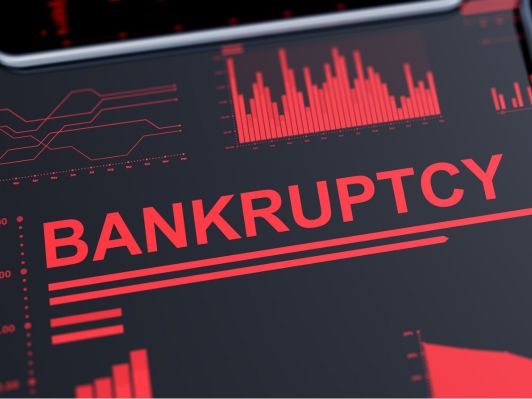Your credit score is key to your financial health. It shows lenders how risky it might be to lend to you. It also affects your chances of getting loans, credit cards, and good interest rates.
To understand how your score changes over time, you need to know how often your credit score updates. In the UK, how often does your credit score update can vary based on several factors.
In this article, we’ll explore how often your credit score is updated in the UK. We’ll share what affects when updates happen. Knowing this can help you track your score better.
Table of Contents
How often does your credit score update in the UK?
Credit scores typically update every 4-6 weeks. Your credit score comes from credit reference agencies. These credit bureaus gather information from lenders and other firms to create your credit report and score. The three main credit bureaus in the UK are Experian, Equifax, and TransUnion.
Most lenders report account information to credit bureaus once a month. They may not all report on the same date. Some may report more or less often. This means new information might appear on your credit report at different times each month.
Not all lenders report to all credit reference agencies. This means the information used to calculate your score may differ between agencies. Some lenders might report to all three main bureaus. Others might only report to one or two.
Your credit score updates when new information is added to your credit report. This could include:
- New accounts being opened
- Accounts being closed
- Changes to account balances
- Payment information
- Hard inquiries from credit applications
When this new information reaches the credit bureaus, they update your credit reports. This may cause your credit score to change.
How credit bureaus calculate your credit score
Credit bureaus look at several key factors to set your credit score:
- Payment history: Have you paid your debts on time?
- Credit use: How much of your available credit are you using?
- Credit history length: How long have you had credit accounts?
- Credit mix: What types of credit accounts do you have?
- New credit: Have you applied for credit recently?
Each factor affects your overall credit score. Payment history usually has the biggest impact. FICO scores, which are widely used in lending decisions, put a lot of weight on your payment history and credit use.
The way credit scores are worked out is complex. It varies based on which model is used. Different credit bureaus might use slightly different methods to calculate your score. This is why your score can vary between Experian, Equifax, and TransUnion.
When do lenders report to credit bureaus?
Most creditors report to credit bureaus monthly. Not all report on the same schedule. Some lenders might report at the end of the billing cycle. Others might report on a certain day of the month. This is why credit scores updates at different times throughout the month.
Here’s when different types of creditors might report:
- Credit card companies: Often report after the statement closing date
- Mortgage lenders: Tend to report at the end of the month
- Personal loan providers: May report on a set day each month
- Utility companies: Some only report if there are late payments
The date you make a payment and when that payment is reported to credit bureaus may not be the same. For example, if you pay off a credit card on the 15th, but your card company reports to credit bureaus on the 1st, your payment won’t show on your credit report until after the next reporting date.
This delay in reporting can cause confusion if you expect to see quick changes to your credit score after making a payment.
How much can you expect your credit report to change?
How much your credit report changes depends on many factors. These include your money habits and how they’re reported to the credit reference agencies.
You can see your free credit score from Experian, TransUnion, and Equifax through various services. Many banks and credit card firms now offer free credit score access.
Credit score updates can vary based on your unique financial situation. Some changes that might affect your score include:
- Paying down debt: Cutting your credit use can boost your score
- Missing payments: Late payments can greatly lower your score
- Opening new accounts: New credit applications can briefly decrease your score
- Closing old accounts: This might reduce your average account age and lower your score
- Credit limit increases: Higher limits can improve your credit use ratio
Good actions like making on-time payments, reducing credit card debt, and managing credit accounts well can slowly improve your score.
You should check your credit reports often, ideally monthly. This, along with steps to improve your credit, can help you keep a healthy credit profile.
How quickly can your credit score improve?
How quickly your credit score improves depends on several factors. These include your starting point and the actions you take. Some improvements can happen fast. Others take more time:
| Action | Potential Impact Time |
| Paying down credit card balances | 1-2 monthly reporting cycles |
| Fixing errors on your credit report | 1-2 months after correction |
| Making on-time payments | Several months of steady payments |
| Recovering from late payments | 12-18 months |
| Recovering from serious issues (defaults, CCJs) | Several years |
Some actions might lead to quick improvements. But building an excellent credit score takes time and steady good credit habits. Remember that credit scores typically update every 4-6 weeks. So you may not see the effects of good changes right away.
In some cases, big improvements can happen faster. This is true if you’re fixing specific issues like high credit use or errors on your credit report.
How long does information stay on my credit report?
Negative information usually stays on your credit report for about 6 years. Here are some common timelines for different types of information:
1. County Court Judgments (CCJs)
If you have a CCJ against you, it will stay on your credit report for six years. This is from the date of the judgment. It stays even if you’ve paid the debt.
Once you settle the CCJ, it should be marked as satisfied on your credit report. This is better than an unsatisfied CCJ. But it will still stay on your report for the full six years unless paid within one month of the judgment.
2. Bankruptcy

If you’ve been declared bankrupt, this information stays on your credit report for 6 years. This is from the date of bankruptcy. Bankruptcy has a big impact on your credit score. It may make it hard to get new credit or loans. Lenders may see you as high risk.
In the UK, bankruptcy typically stays on your credit file for six years. After this, it should be removed automatically. But you may still be asked about past bankruptcies when applying for certain money products even after this time.
3. Searches and Enquiries
Credit application records, also known as hard inquiries or searches, usually stay on your credit report for 1 year. A debt collection search can stay on your report for 2 years. Lenders can see these inquiries when you apply for credit. They may affect lending decisions.
Not all inquiries affect your credit score the same way. Soft inquiries show up on your credit report. But they don’t impact your credit score. Only you can see them, not potential lenders.
Many hard inquiries in a short time could suggest to lenders that you’re having money problems. Or that you’re taking on too much debt too quickly.
4. Credit Accounts
These stay on your file for 6 years. This includes information about your credit accounts. Examples are short term loans, credit cards, and mortgages. Details about your payment history, credit limits, balances, and any defaults are included.
Closed accounts with good history can actually help your credit score for the full six years they stay on your file. They show you can manage credit accounts well. This can be good for your credit history.
5. Late Payments

If a late payment is recorded on your report, it will stay there for 6 years. But its impact on your score will lessen as time passes. This is because lenders usually care more about your recent credit history when making lending decisions.
Timely payments on credit, including personal loans, are vital. So is avoiding defaults for a healthy credit report. Even one late payment can impact your credit score. But the effect lessens over time if you keep a good payment record afterward.
Why different credit bureaus might show different scores
If you check your credit score with different credit bureaus, you might notice that your scores differ. This is normal and happens for several reasons:
- Reporting differences: Not all lenders report to all three major credit bureaus. Some might report to only one or two. This means each bureau may have slightly different information about your credit accounts.
- Timing variations: Different credit bureaus might update information at different times. One might have more recent information than another.
- Scoring models: Each credit reference agency may use slightly different formulas to calculate your credit score.
- Score ranges: The three main UK credit bureaus use different scoring ranges:
- Experian: 0-999
- Equifax: 0-1000
- TransUnion: 0-710
These differences mean it’s good to check your credit report with all three major credit bureaus. This gives you a complete picture of your credit health. Many free credit score services now offer access to scores from multiple bureaus. This makes it easier to monitor all your scores.
How to monitor your credit score effectively
To stay on top of your credit score, try these effective monitoring strategies:
- Use free credit score services: Many services offer free credit score access, including:
- ClearScore (uses Equifax data)
- Credit Karma (uses TransUnion data)
- Experian’s free service
- MoneySavingExpert’s Credit Club
- Set up alerts: Many credit tracking services can alert you to big changes in your credit report or score.
- Check all three bureaus: Since information can differ between credit bureaus, it’s worth checking your score with all three major agencies.
- Regular reviews: Check your credit reports at least monthly to catch any issues early.
- Look for errors: Often review your credit report for mistakes that could be hurting your score.
- Track your progress: If you’re working to improve your credit score, regular monitoring helps you see if your efforts are working.
Checking your own credit score is a “soft inquiry” and doesn’t affect your credit score. So you can check as often as you’d like without any bad impact.
What do I do if my credit score isn’t getting updated?
Updates to your credit report can take 4-6 weeks. If it’s been longer than that since you’ve seen any changes, here are some steps to take:
- Contact your lenders to confirm they’re reporting your account activity to the credit bureaus
- Check with all three major credit reference agencies. Some lenders may report to one but not others
- Look for any errors in your personal information that might be causing reporting issues
- Consider reaching out to the credit bureau directly to ask about the lack of updates
- Keep monitoring your credit report regularly to check for new info
If you’ve recently made good changes, like paying down debt or making on-time payments, remember that it can take at least one full reporting cycle before these actions affect your credit score.
Does my credit score change daily?
No, in general, credit scores do not change daily. While the information that affects your credit score might change daily (such as credit card balances or new inquiries), your actual credit score doesn’t update that often.
Credit scores typically update monthly. Most lenders report new information to credit bureaus once a month. This means your credit score will usually only change when:
- Lenders report new information about your accounts
- New credit applications are made
- Public records are added or removed
- Existing information ages or falls off your report
Credit score change daily isn’t common. If you’re actively working to improve your score, you might see changes each time new information is reported to the credit bureaus.
Conclusion
Credit scores update regularly, but the timing varies. Most credit scores typically update every 4-6 weeks. This can vary based on when lenders report new information to the credit bureaus.
Monitoring your credit score and reports helps you stay in control of your money health. By making timely payments and managing credit wisely, you can improve your score over time.
Building a strong credit profile is an ongoing process. But staying proactive will put you on the path to better financial options. Remember that credit score updates don’t happen right away. This helps you set realistic goals as you work to improve your credit health.
FAQs
How can I check my credit score for free in the UK?
You can get a free credit report by signing up with credit reporting agencies. These include Experian, Equifax, or TransUnion. These agencies let you access your credit reports and scores for free once a year.
What happens after I raise a dispute related to a credit report?
The process takes about 28 days, depending on the complexity. When you raise a dispute about information on your credit report, the credit reference agency will investigate. They’ll contact the lender or company that provided the info.
The typical dispute process follows these steps:
1. You submit a dispute to the credit reference agency
2. The agency contacts the lender to verify the information
3. The lender investigates and responds to the agency
4. If the information is wrong, the lender reports the new information to the credit bureau
5. Your credit report is updated with the corrected information
During this process, the disputed information may be marked as “under dispute” on your credit report. If the investigation confirms the information is wrong, it will be removed or updated. If the lender verifies the information as accurate, it will stay on your report.
What day of the month do credit scores update?
There’s no specific day when all credit scores update. Updates happen when lenders report new information to the credit bureaus. Different lenders report on different schedules. Some lenders might report at the end of your billing cycle. Others report on a specific calendar date. Some may report throughout the month. This means that updates to your credit report and score can happen at various times.
How to get 800 credit score in 45 days?
Getting an 800 credit score in just 45 days is extremely unlikely for most people. This is especially true if you’re starting from a lower score. Credit scores in the 800+ range typically reflect years of excellent credit management.
Does your credit score change every 7 days?
No, your credit score typically doesn’t change every 7 days. Credit scores generally update when new information is reported to the credit bureaus. This usually happens monthly for most accounts.
Disclaimer: The information given above is provided for reference only. This is not financial advice.

